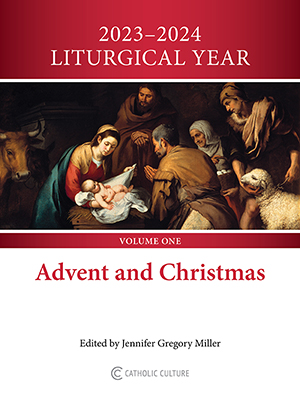Lambada, anyone? Exemplars of Jesuit Life
By Diogenes ( articles ) | Jan 02, 2005
"They were more concerned about rumors of documents from Rome regarding the suitability of gay men as priests than they have been affected by the current sexual scandals. In general, I think they are doing well, and I would urge you to attend closely to these men if they are in your community."
That's Fr. Tony Sholander, S.J., Assistant for Formation of the California Jesuit Province, writing to heads of houses about a meeting of recently ordained priests in 2003, quoted by Robert Kumpel in this month's San Francisco Faith.
Historian Henri Bremond (c. 1920) criticized Jesuit spirituality as "un culte ascétique du moi" (self-worship with an ascetic tang). Though unfair as a universal description, and laughably obsolete as far as asceticism goes, Bremond's charge of self-absorption could hardly be better illustrated than by Sholander: not only finding it vital to alert superiors to the trauma caused young Jesuits by the rumor that the Holy See might look askance at gay priests, but urging that their Jergens-softened hands be held reassuringly until the danger passes. The Edmund Campion legacy. Also quoted in Kumpel's article is California Provincial Thomas Smolich, S.J., who insists that, whatever Rome may decide about gays in the priesthood, his own ballot is in:
"Both from a cultural and from a neo-radical point of view, many political perspectives have come become attached to this scandal. The most dominant one right now is the issue of gay seminarians, that homosexually-oriented men should not be ordained priests... From my first year as Provincial, I have said publicly and in print that we always have had and will continue to have gay or homosexually-oriented members of the Province who are exemplars of our way of life."
Exemplars of our way of life. News reports demonstrate that Smolich and his exceedingly gay-friendly novice master Robert Fambrini, S.J., have worked tirelessly for the expansion of this exemplary model, and it's no accident that all three Jesuit critics of the gay takeover quoted in Kumpel's article are anonymous. "Don't Ask Don't Tell" has become the by-word of the dissident hetero minority. The web-page of California's Jesuit noviceship once featured photos of novices prancing and cuddling in Mardi Gras masks, with apposite captions for those slow on the uptake. One was titled "Pretty Boy & Jabba the Slut"; another, "Lambada, anyone?"

Stuart Reid, writing in the London Telegraph, observed, "These images were not found in some spotty novice's desk drawer, note, but were intended to place the Jesuits in a good light before the 700 million people around the world with internet access." Good point. Unlike the St. Poelten pornograms, this is the picture of their enterprise fast-track Jesuits want the world to have.
So what message does the image convey? Does it invite a young man to a life of prayer? To a life of mortification and death to self? To a life of missionary rigor? To a life of priestly service of God at the altar? Can't see it, your reverences. What I see are solipsists so wrapped up in their cocoon of pleasure-seeking that the seeking has become, not a distraction from religion, but true religion itself. Call it "un culte sybaritique du moi" -- in plain English, a gay dating service.
All comments are moderated. To lighten our editing burden, only current donors are allowed to Sound Off. If you are a current donor, log in to see the comment form; otherwise please support our work, and Sound Off!








